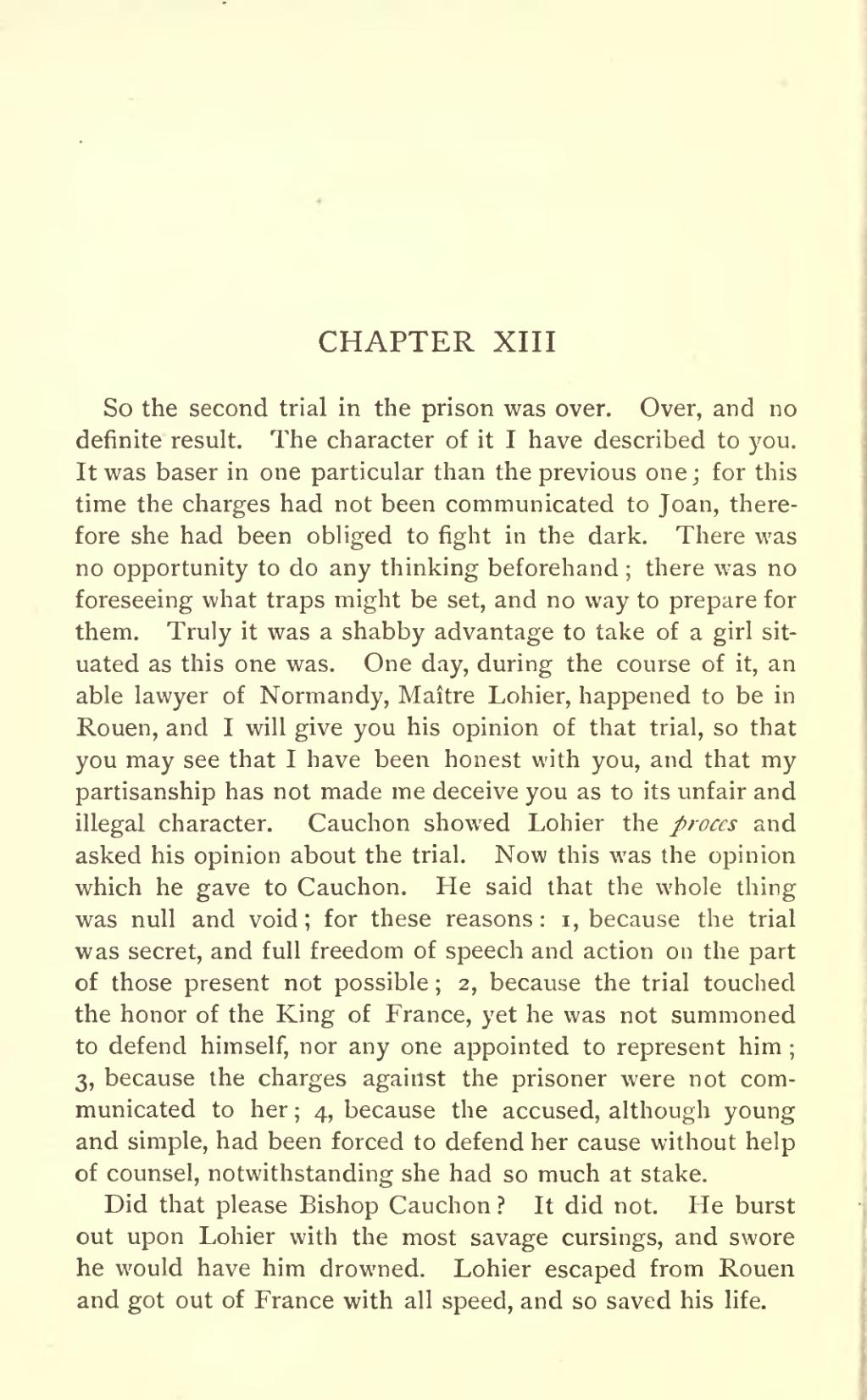Chapter XIII
So the second trial in the prison was over. Over, and no definite result. The character of it I have described to you. It was baser in one particular than the previous one; for this time the charges had not been communicated to Joan, therefore she had been obliged to fight in the dark.
There was no opportunity to do any thinking beforehand; there was no foreseeing what traps might be set, and no way to prepare for them. Truly it was a shabby advantage to take of a girl situated as this one was. One day, during the course of it, an able lawyer of Normandy, Maetre Lohier, happened to be in Rouen, and I will give you his opinion of that trial, so that you may see that I have been honest with you, and that my partisanship has not made me deceive you as to its unfair and illegal character. Cauchon showed Lohier the proces and asked his opinion about the trial. Now this was the opinion which he gave to Cauchon. He said that the whole thing was null and void; for these reasons: 1, because the trial was secret, and full freedom of speech and action on the part of those present not possible; 2, because the trial touched the honor of the King of France, yet he was not summoned to defend himself, nor any one appointed to represent him; 3, because the charges against the prisoner were not communicated to her; 4, because the accused, although young and simple, had been forced to defend her cause without help of counsel, notwithstanding she had so much at stake.
Did that please Bishop Cauchon? It did not. He burst out upon Lohier with the most savage cursings, and swore he would have him drowned. Lohier escaped from Rouen and got out of France with all speed, and so saved his life.
